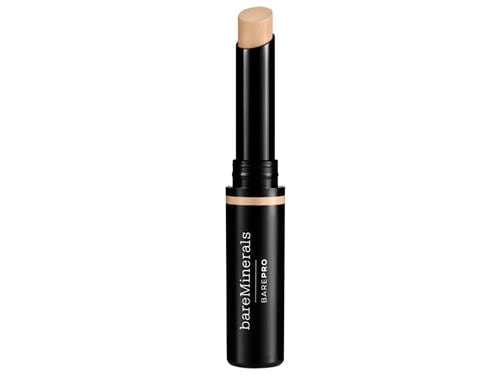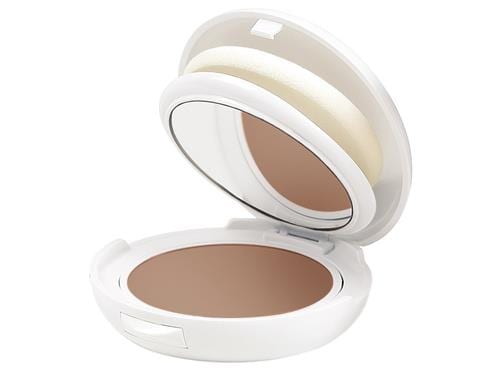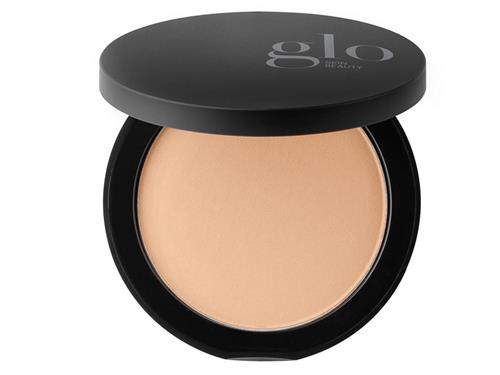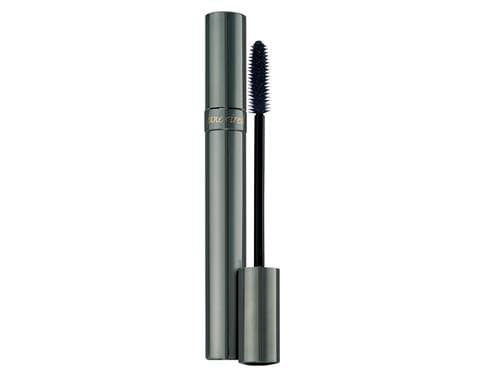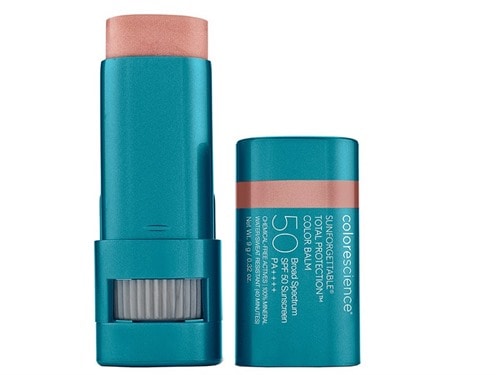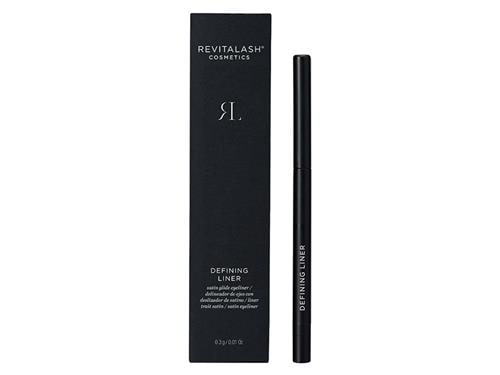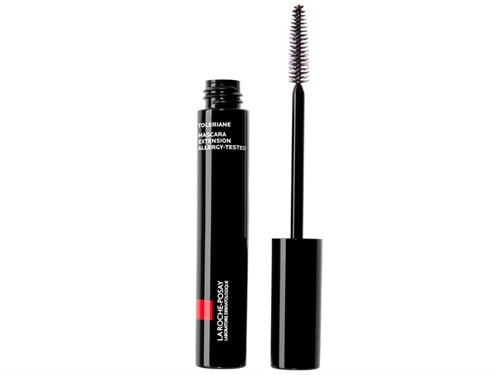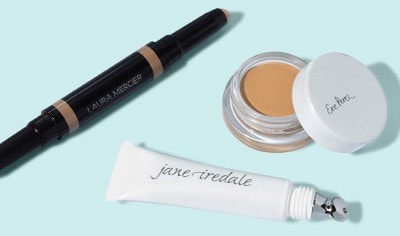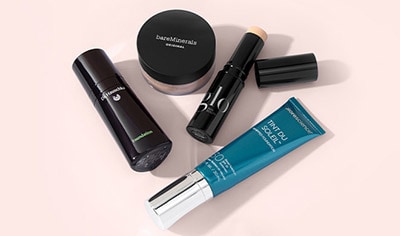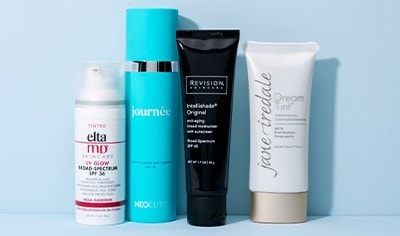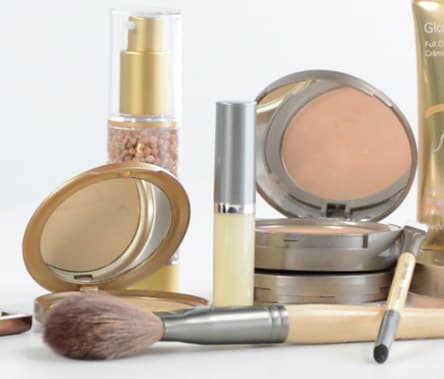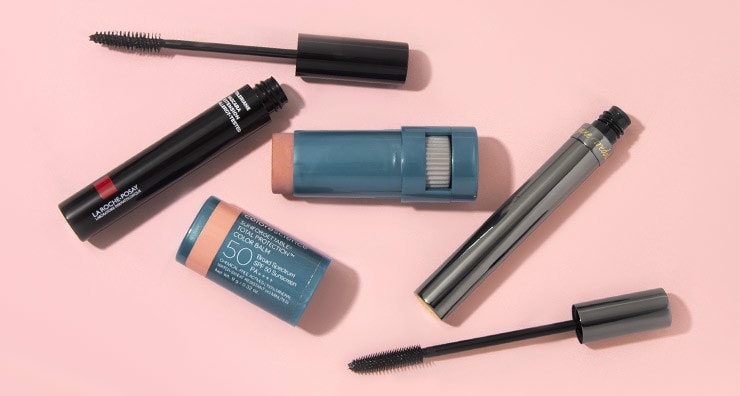
If you’ve ever noticed your skin turning red or itchy after applying a new foundation, mascara or blush, you might have wondered if you were having an allergic reaction to makeup. Though, how can you know for sure what you’re experiencing is a makeup allergy, and what should you do if it happens again? With the help of board-certified dermatologist and LovelySkin CEO Dr. Joel Schlessinger, we’ll break down everything you need to know about makeup allergies, including the answers to frequently asked questions such as:
- What are some common makeup allergies?
- What are symptoms of an allergic reaction to makeup?
- What should you do if you have an allergic reaction to makeup?
- What makeup should I use if I have an allergic reaction to makeup?
The Causes of Common Makeup Allergies
What ingredients could cause an allergic reaction to makeup? Theoretically, any ingredient could cause an allergy, though some are more likely than others. “An allergic reaction is your immune system going into overdrive and overreacting to a particular ingredient,” Dr. Schlessinger says.
The FDA outlines five common allergens in cosmetics: fragrance, preservatives, dyes, rubber and metal. “Makeup manufacturers are not required to disclose what is used to make fragrance, so when you see that listed on an ingredient list, it’s impossible to know what it might include,” Dr. Schlessinger says. “Additionally, some ‘natural’ fragrances don’t have to be disclosed on the packaging, so though it may say it is ‘fragrance-free,’ it may have some added that are ‘natural.’”
It is possible for preservatives such as parabens to cause allergic reactions, as can dyes used to give cosmetics their color. Rubber and metals such as nickel can also cause allergies for some people, and they’re sometimes used in makeup tools such as eyelash curlers or tweezers, or in the metal palette pans that hold blush or eyeshadow. Certain plant botanicals and essential oils can also cause allergies, as can animal-derived ingredients such as lanolin.
Symptoms of an Allergic Reaction to Makeup
A mild allergic reaction in the form of a rash on your skin is called contact dermatitis. It might start with itching and then progress into redness or a rash. Though a contact dermatitis rash is definitely uncomfortable, it’s not contagious. When you’re able to eliminate the allergen that caused the rash, it should clear up within a few weeks. “Whatever the case, an allergy won’t ever disappear,” Dr. Schlessinger says. “In fact, if untreated, it will only get worse.”
Though rare, it’s possible to have a severe allergic reaction to makeup. If you’re noticing symptoms such as trouble swallowing, wheezing or shortness of breath, that could be a sign of an allergic reaction called anaphylaxis, and you should seek emergency medical attention immediately, according to the FDA and Dr. Schlessinger.
What to Do if You Think You Might Have a Makeup Allergy
If you suspect you might be having a mild allergic reaction to makeup in the form of a rash, it’s a good idea to see a board-certified dermatologist. They can make a recommendation for treatment, such as an over-the-counter or prescription topical ointment, and advise how long you should take a break from makeup and skin care products to let your skin properly heal. Perhaps most importantly, your doctor can also make sure the rash isn’t due to something else entirely, like an underlying medical condition.
A dermatologist can also help you try and pinpoint what exactly is causing the reaction, so you can avoid it in the future. Dermatologists are best suited to do patch testing for actual ingredients which may cause issues as well, so they should be your first stop in any analysis of a reaction to makeup. During an in-office patch test, common allergens are applied to your skin in small amounts and watched closely for an allergic reaction. If an internal cause is suspected, they may then recommend you see an allergist for evaluation by blood tests or prick tests for other environmental causes.
Hypoallergenic Makeup, Fragrance-Free Makeup and More
The term hypoallergenic is often used by cosmetics companies to indicate a product is free of ingredients that tend to cause allergies. “However, because there aren’t any federal standards mandating what it means to be hypoallergenic, it’s not a guarantee of anything,” Dr. Schlessinger says. “You may want to dig a bit deeper when reading labels to see if the product has undergone any clinical testing and, if in doubt, see your dermatologist for advice on whether your ingredients are actually likely to be hypoallergenic. Bring in your products with you to your office visit, and, if possible, have a list of their ingredients if they are available from the manufacturer. This can be the difference between success and failure in determining a cause for the allergy.”
If your skin tends to be sensitive, you may want to look for makeup that is labeled fragrance-free. This term also isn’t defined by the government, but generally speaking, using makeup that is fragrance-free can help reduce the number of unknown ingredients in the mix that could potentially cause a makeup allergy or otherwise irritate your skin.
If you find your skin has allergic reactions to synthetic pigments or dyes in makeup, mineral makeup could be a better choice. Mineral makeup relies on naturally derived minerals to provide color rather than synthetically made dyes.
7 Product to Try if You’re Concerned About an Allergic Reaction to Makeup
Because the terms “hypoallergenic” and “fragrance-free” aren’t standardized across all makeup manufacturers, choosing dermatologist-approved brands that are reliably free of common allergens is a good strategy if you’ve had an allergic reaction to makeup in the past. Here are some suggestions from trusted brands that Dr. Schlessinger recommends to patients:
bareMinerals barePRO 16-Hour Full Coverage Concealer
This full-coverage concealer uses mineral pigments to achieve its range of shades and is entirely free of parabens and fragrance. Its long-lasting formula was designed to last sixteen hours, effectively resisting sweat, water and humidity. As an added bonus, it also contains antioxidant-rich ingredients, such as blackcurrant seed oil, raspberry seed oil and sea lavender to protect your skin against damage from free radicals.
Avene High Protection Tinted Compact SPF 50
“Avene is formulated specifically for allergic individuals with fewer preservatives than other products,” Dr. Schlessinger says. “The reason they are able to do this is because many of their products are packaged in one-way tubes that don’t allow air to re-enter when product is applied. This allows for less air in the tube and, by extension, less chance for contamination. They are one of the best when it comes to makeup for sensitive, allergy-prone skin.”
This tinted sunscreen cream provides broad-spectrum protection with zinc oxide and titanium dioxide, and the formula itself is free of fragrance and parabens. It also contains vitamin E to help protect skin against free radicals as well.
Glo Skin Beauty Pressed Base
This mineral-based foundation in a pressed powder formula gives buildable coverage to conceal redness and discoloration and leave your skin looking radiant. A blend of antioxidant-rich ingredients—vitamins A, C and E as well as green tea extract—help correct existing signs of aging while protecting against future signs of aging.
jane iredale PureLash Original Mascara
If you’re concerned with makeup allergies, clean beauty brand jane iredale is known for its gentle products that are tested by dermatologists and formulated without synthetic preservatives and fragrances. This mascara helps lashes look thicker and longer while conditioning with seaweed and panthenol.
Pro tip: Keep an eye out for the new jane iredale Beyond Lash Mascara launching November 18!
Colorescience Sunforgettable Total Protection Color Balm SPF 50
If you’ve had a makeup allergy to products with chemical sunscreens in the past, makeup made with mineral sunscreen could be a better choice for you. We love this versatile lip and cheek color for its easy-to-apply stick format and SPF 50 protection from zinc oxide, an all-mineral sunscreen ingredient.
RevitaLash Cosmetics Defining Eyeliner
This eyeliner provides a dramatic, defined look with a formula that’s unlikely to irritate the delicate skin around your eyes. It’s made without fragrance, oils and preservatives, such as parabens or phthalates. The addition of vitamin E and silicone emollients helps give this eyeliner a silky texture, so it glides on easily with every application.
La Roche-Posay Toleriane Extension Lengthening Mascara
This mascara has gone through extensive testing by dermatologists and ophthalmologists to ensure it’s suitable for sensitive eyes and those prone to makeup allergies. The smudge-free formula contains no parabens or fragrance and with just a few swipes, your eyelashes will look thicker and longer.
Now that you know which cosmetics will help you avoid makeup allergies, are you curious what makeup brushes you should be using for what? We’ve got you covered with our latest makeup brushes guide.
5 Tips for Learning How to Wash Your Fac...
Overwashed, dry skin? Try shea butter cr...
Follow us on social
Follow us on social networks and be one of the first to learn about sales, giveaways, and free samples

